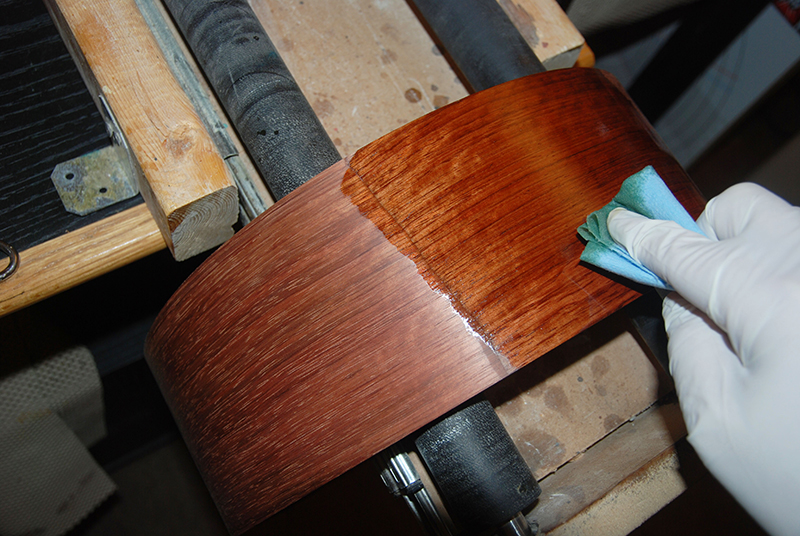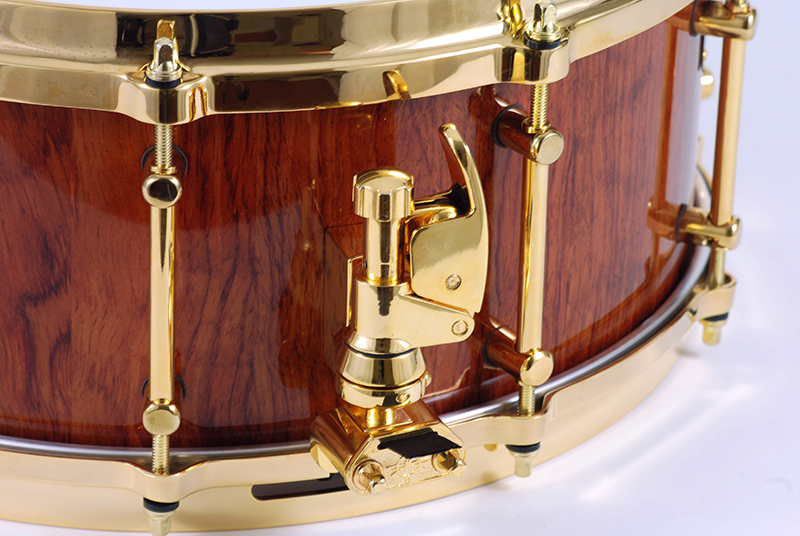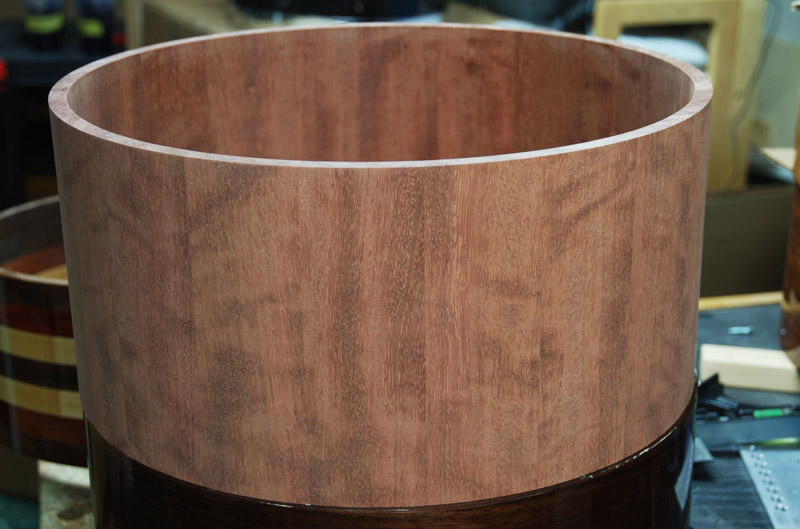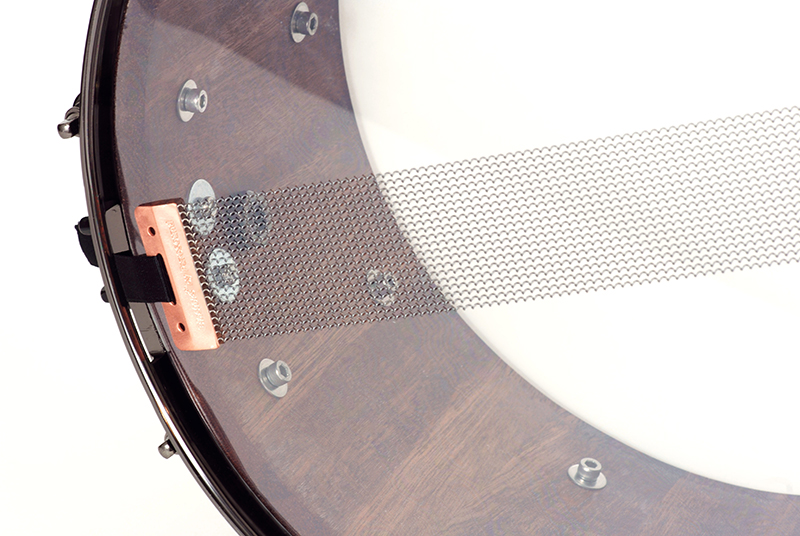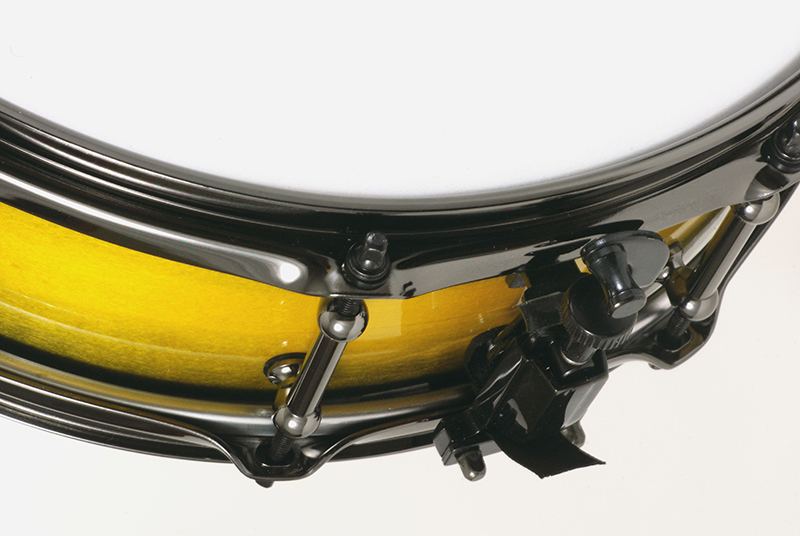I live in an area that has a lot of local breweries, and people around here talk and write about beer a lot. So recently, when I saw an article about the blurring of lines as to what’s considered a “craft brewery” and what isn’t, I realized that there’s a connection between drums and beer that I hadn’t considered: confusion about industry categories and how to describe them.
For a column on custom drums, it’s probably a good idea to address the question of what the term “custom” actually means. These days, “custom drum building” gets used to cover a lot of ground. Unfortunately, it also can mean different things to different people. As drummers, we’re already challenged by how to describe sounds, rhythms, and techniques, so misunderstandings about industry categories just add to the confusion. Who knew we had to work so hard on our communication skills?
Here are just a few examples of the way “custom drum” gets used:
- Some folks – well, okay, a lot of folks – tend to lump all drum makers who aren’t mass manufacturers under the term “custom builders” – which loosely refers to anyone who’s not a major brand.
- For others “custom” can mean do-it-yourself or homemade, as in “I just built myself a custom drum.”
- Sometimes it’s used to refer to any drum made to order.
- And sometimes it means any drum made by hand or in a non-automated shop.
To be honest, if you’re looking for an alternative to the big brands, there are too many subcategories to simply throw the choices together in one list and have it be at all useful. So a lot of us use the term “boutique” (as distinct from “custom”) as a way to be more specific. But even that doesn’t clear things up, because not everyone understands those terms the same way:
- To some, “custom” refers to companies that build to order and “boutique” means companies that pre-produce their drums. If you want to have something built go to a custom builder, and if you want something that’s already made go to a boutique builder.
- To others, “custom” companies would be those that will produce a drum to your exact specifications, whereas “boutique” companies build only within their own style even on special orders.
- And to still others, a “custom” shop is the smallest size builder and a “boutique” shop is the next size up but stopping short of mass production. Of course, where those lines get drawn is open to interpretation, too.
So, when you’re thinking about a new drum or kit, the way a company describes itself may not be at all like your understanding of the description. How can you find your way through the communication tangle and identify the right sources out there for the services you want?
Here’s a way of breaking it down that can provide you some actual guidance – not exactly a road map, but it might help you head in the right direction. Besides the mass-production big brands, I see five categories of drum builders, reflecting different areas of services. Each has certain opportunities and limitations – but who you are determines what’s a pro and what’s a con, because it’s all about finding the best match for you.
Stock builds only – These companies make drums in specific designs or series. Once the drums are completed, they’re made available for sale, either directly or through retailers. You may be able to shop a limited selection of sizes or materials, but you’re not likely to find something they don’t routinely make.
Build to order within certain brand parameters – In this case, the company will build a drum specifically made for you, but the menu of choices will be limited to stay within the boundaries of the company’s style and sound. So you may have some choices of shell materials and finishes, even dimensions, but probably fewer choices for lugs or bearing edges. Generally, this is the category if you know you like the look and sound but want to fit as closely as possible to you and your playing style.
Build to customer specs – This category is what I would consider true custom work. If you can imagine it, they can build it, in whatever materials, colors, hardware or dimensions you desire. You do the design, they make it happen.
Modification – These are shops that can change one drum into another by cutting down shells, stripping and refinishing, recutting edges, replacing hardware, etc. If you want to make changes to existing drums or kits, these builders can help you change the look, sound and performance of your drums.
Repair & restoration – These are companies that specialize in bringing older or damaged drums back to their original condition. It may be a matter of replacing parts or it might involve some major surgery, but these builders are knowledgeable about how various brands were built in the first place and have the skills to duplicate those specifications.
Yes, there are overlaps of these categories, of course. You’ll find build-to-order shops that also do modifications, and full-custom shops that will pre-build as well. But in general, applying these categories to what you see and hear about a company will help you figure out whether you might be on the same wavelength with them when it comes time to choose a source for the next drum in your arsenal.
Of course, we’re just talking about drums here. As to differentiating different kinds of breweries, maybe that’s best left as a trial-and-error process.

